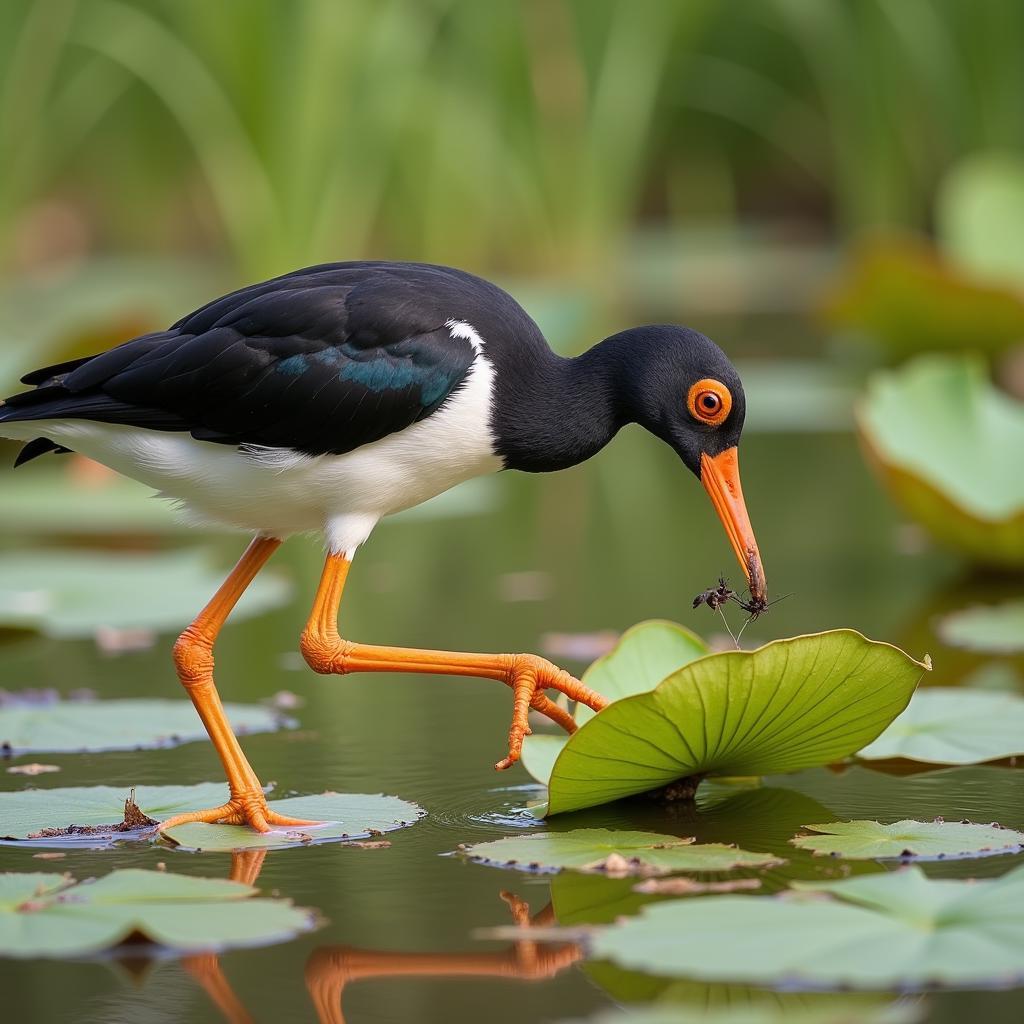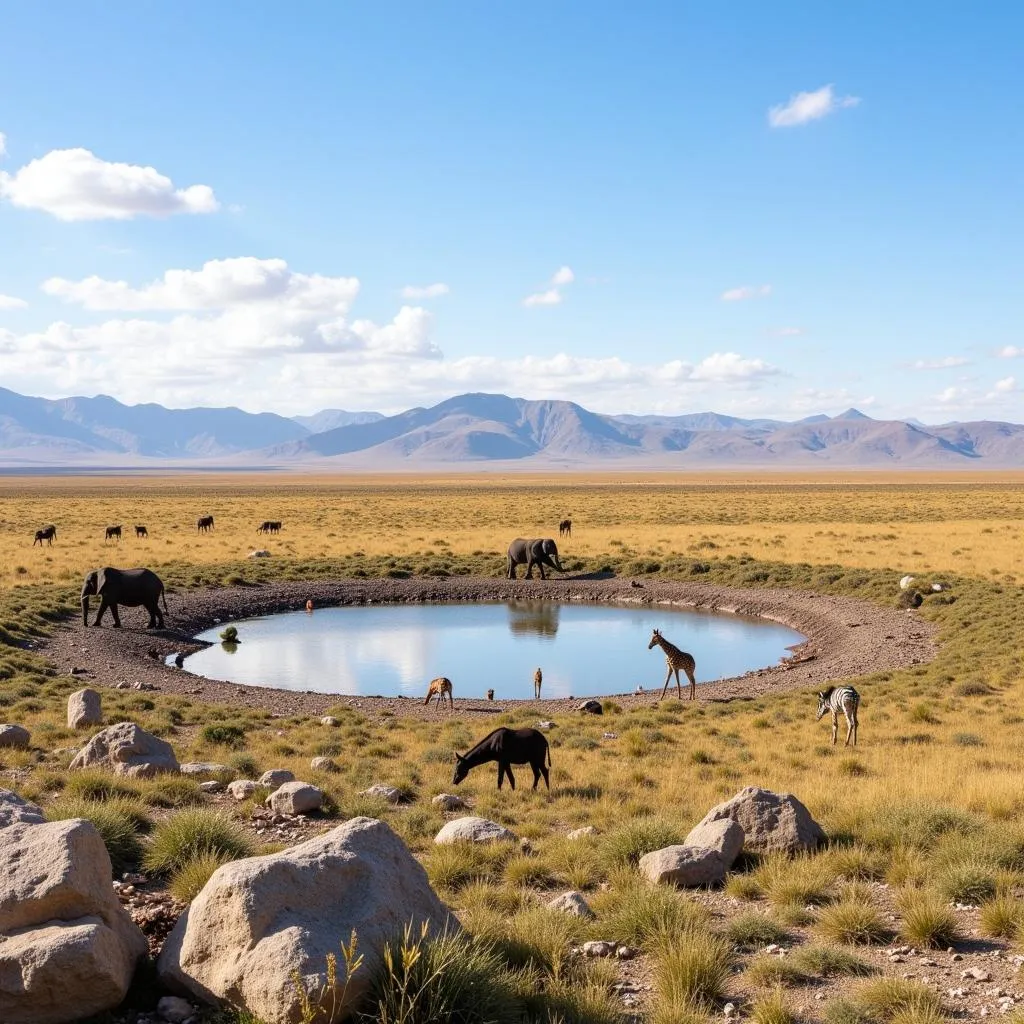Unveiling the Myth of the African American Ninja
The term “African American Ninja” often evokes images of stealthy warriors, shrouded in mystery. This article delves into the historical context, cultural influences, and the reality behind this intriguing concept. We’ll explore the intersection of African martial arts traditions and the popular perception of the ninja, examining how these ideas intertwine.
African Martial Arts: A Rich History
Africa has a vibrant and diverse history of martial arts, often interwoven with spiritual practices, self-defense techniques, and community rituals. These traditions, passed down through generations, represent a crucial element of African culture, embodying physical prowess, strategic thinking, and cultural values. Forms like Nuba wrestling in Sudan, Engolo in Angola, and Laamb in Senegal showcase the continent’s rich martial heritage. These practices are not merely about combat; they are deeply embedded in the social fabric, serving as expressions of community identity, rites of passage, and celebrations of strength and skill.
These traditions, often overlooked in mainstream narratives, challenge the dominant perception of martial arts as primarily East Asian. The emphasis on agility, strategy, and deception in some African fighting styles inevitably leads to comparisons with the ninja archetype. However, it’s important to distinguish between shared characteristics and direct influence.
The Ninja: Fact and Fiction
The ninja, shrouded in myth and legend, are often depicted as shadowy figures specializing in espionage, sabotage, and assassination. Their image in popular culture is heavily influenced by fictional portrayals, often romanticized and exaggerated. The historical reality of the ninja in feudal Japan is more nuanced, involving complex political dynamics and specialized skills in unconventional warfare. Their expertise was rooted in practicality and survival, often employed by clans seeking to maintain their power or gain an advantage in times of conflict.
The “African American Ninja”: A Modern Interpretation
The concept of the “African American ninja” has emerged in contemporary culture, blending elements of historical African martial arts with the romanticized image of the ninja. This fusion often appears in fictional works, video games, and other forms of media, reflecting a desire for representation and the reimagining of historical narratives. It is essential to approach this concept critically, acknowledging the fictionalized nature of the ninja archetype while appreciating the rich history of African martial arts traditions.
Is there a historical connection between African martial arts and ninjas?
While no direct historical link exists between African martial arts and the ninja of feudal Japan, the shared emphasis on agility, strategy, and deception in some African fighting styles may lead to superficial comparisons. It’s crucial to differentiate between shared characteristics and direct influence, avoiding the perpetuation of misconceptions.
How does the “African American ninja” figure into popular culture?
The “African American ninja” figure frequently appears in modern media, often as a symbol of empowerment and resilience. This portrayal can offer a powerful representation of African Americans in roles that defy traditional stereotypes.
Honoring African Martial Heritage
Rather than focusing solely on the “African American ninja” as a literal concept, we should celebrate the rich legacy of African martial arts. These traditions offer valuable insights into African culture, history, and philosophy. They deserve recognition and appreciation in their own right, independent of comparisons with other martial traditions.
By understanding the distinct histories and cultural contexts of both African martial arts and the ninja, we can appreciate the nuances and complexities of these traditions. Let’s shift our focus from the mythical “African American ninja” to the real-life power and beauty of African martial heritage.
Conclusion
The “African American ninja” is a fascinating concept that invites us to explore the rich history of African martial arts. While no direct historical link exists to the ninja, the image serves as a springboard for discussion and appreciation of diverse martial traditions. Let’s continue to learn and celebrate the unique heritage of African martial arts.
FAQ
- What are some examples of African martial arts? Examples include Nuba wrestling, Engolo, and Laamb.
- What is the historical context of the ninja? Ninjas were agents in feudal Japan specializing in unconventional warfare.
- Is the “African American ninja” a historical figure? No, it’s a modern concept often seen in fiction.
- Why is it important to learn about African martial arts? It provides valuable insights into African culture and history.
- Where can I find more information about African martial arts? Research online and explore dedicated resources.
- What is the significance of the term “African American ninja”? It highlights the intersection of cultural influences.
- How can I support the preservation of African martial arts traditions? Promote awareness and support organizations dedicated to their preservation.
Need assistance? Contact us 24/7: Phone: +255768904061, Email: [email protected] or visit us at Mbarali DC Mawindi, Kangaga, Tanzania.



